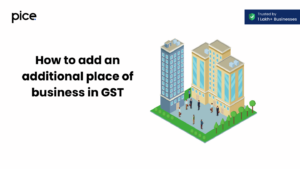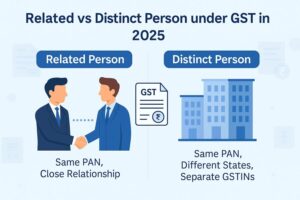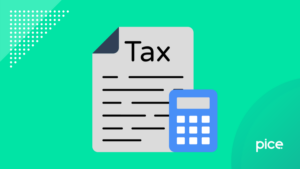GST in Real Estate
- 10 Sep 24
- 8 mins

GST in Real Estate
Key Takeaways
- GST has unified multiple taxes into a single tax, benefiting both property buyers and developers in the real estate sector.
- Buyers of under-construction properties pay 5% GST, while ready-to-move properties are exempt from GST.
- Developers benefit from the input tax credit (ITC), which reduces their tax burden and operational costs.
- The cost of essential raw materials like cement, sand, and steel has decreased under GST, affecting property prices.
- Property buyers can adopt a "wait and watch" approach as developers pass on the ITC benefits during the final stages of property sales.
The Goods and Services Tax (GST), introduced under the GST Act of 2017, has significantly impacted multiple industries, including real estate industry. Changes in taxation norms and the consolidation of various taxes into a unified tax system have further been beneficial for property buyers and developers.
In this blog, we will walk you through the impact of GST on real estate in detail while highlighting how GST affects the sale of land and constructed, and under-construction properties.
Understanding GST in Real Estate
Investors and home buyers need to pay GST while purchasing under-construction properties. Prior to the introduction of GST, home buyers had to pay various taxes such as VAT (Value-added tax), stamp duty, service tax, registration fees and others.
However, now home buyers need to pay a unified tax that replaces all other previously existing taxes. Home buyers purchasing ready-to-move properties or completed properties do not have to pay GST as these properties have completion certificates.
💡If you want to pay your GST with Credit Card, then download Pice Business Payment App. Pice is the one stop app for all paying all your business expenses
Taxability of Real Estate Transactions Before GST
Prior to 2017, home buyers had to pay taxes on under-construction properties at the following rates:
| Nature of Duty | Tax Rate |
| VAT | 1% to 4% |
| Service Tax | 4.5% |
| Registration Charges | 0.5% to 1% |
| Stamp Duty | 5% to 7% |
GST Effects on Real Estate Transactions
The introduction of GST aimed to ensure transparency in the real estate sector in terms of taxation. Here is how GST applies to the following real estate transactions:
GST Rate for Sale of Land
The sale of land is exempt from GST, indicating that buyers do not have to pay GST on the purchase of land. However, if a buyer purchases land from developed projects with infrastructure such as electricity, water and roads, GST might apply.
In addition, if a buyer purchases land in a plotted real estate project with infrastructure, GST might apply. In other words, if a land includes infrastructure, GST will likely apply while a land without infrastructure will not attract any GST.
GST on Properties Under Construction
Purchase and sale of under-construction properties attract GST based on the construction status and profile of the developer. Developers can claim an input tax credit (ITC) for under-construction properties which reduces their tax burden.
Notably, under-construction properties and ready-to-move properties without a legitimate completion certificate issued at the time of sales, attract GST. The GST rate for an under-construction residential house without input tax credit is 5%. On the flip side, the GST for affordable housing projects without ITC is 1%.
GST on Completed and Ready-to-Move Properties
As ready-to-move properties are considered 'immovable properties' under the GST Act, 2017, the sale of these properties does not attract GST. However, if the developer offers additional amenities like clubhouse membership, parking space and swimming pool, it will likely attract GST on the sale of land. As a buyer, it is essential to clarify GST implications with your developer to avoid discrepancies.
GST on Completed Properties
Completed properties are considered immovable under the GST regulations and are exempted from GST if they have legitimate completion certificates. However, completed properties attract property tax or real estate tax. The property tax rate in India varies between states, ranging from 5% to 20% usually.
Impact of GST on Stakeholders

The impact of GST on real estate stakeholders varies significantly as follows:
Effect on Buyers
The previous tax regime mandated the payment of VAT, service tax, registration charges and stamp duty charges on the purchase of under-construction properties which significantly varied between different Indian states.
However, after the GST introduction, buyers have to pay a single tax rate of 12% on the purchase of under-construction properties. Further, completed or ready-to-sale properties are exempted from GST under the GST regime.
In the short run, buyers can implement the ‘Wait and Watch’ strategy to purchase properties when the price is low. However, in the long run, buyers can reap the benefits of property purchase if the input tax credit (ITC) that developers receive is passed onto the buyers.
Effect on Developers, Builders, and Contractors
The previous tax regime before GST necessitated developers to pay excise duty, VAT, customs duty and entry taxes on raw materials and inputs. Further, it mandates service tax payment for developers on approval charges, architect professional fees, labour and legal charges.
ITC was further unavailable for central sales tax, customs duty and entry tax. This increased the tax burden on real estate developers, increasing the price of properties significantly. The developers passed on the tax burden on buyers impacting the sale price of properties.
As multiple taxes have been unified under the GST regime, developers now bear a lower cost burden in the construction industry. Further, developers have been effective in increasing their profit margin with reduced logistics costs.
However, developers have to consider multiple factors to be able to avail ITC. As a result, it is at the last stage of property sale when developers pass on the ITC to buyers affecting property prices significantly.
In addition, in the previous taxation system, several expenditures remained unrecorded which the GST system has effectively replaced. This has improved the outcome for developers, builders and contractors in terms of taxation structure.
Effect on Other Stakeholders
The price of the property or the property cost varies based on the prices and taxes applicable on raw materials like cement, sand, service suppliers and labour costs. Under the earlier tax regime, cement was taxed at 27% to 31% while the new regime makes it taxable at the rate of 18%. Thus, changes in tax on these components significantly affect property prices.
Here is the applicable rate of GST for a few of the construction-associated elements:
| Product | Rate of GST |
| Sand | 5% |
| Sand & Fly Ash Bricks | 12% |
| Steel | 18% |
| Paints | 18% |
| Marble and Granite | 28% |
| Cement | 18% |
GST Exemptions in Real Estate
The following table illustrates the components exempted from GST in the real estate industry:
| Real Estate Components | Applicability |
| Ready-to-move properties with completion certificate | Under Schedule III of the CGST Act, 2017, this is treated neither as a supply of service nor a supply of goods. |
| Resale of Property | Not applicable |
| Land purchases and sales | Under Schedule III of the CGST Act, the purchase and sale of land is neither a supply of service nor a supply of goods. |
Key Points to Remember about GST in Real Estate
Here are some notable things to remember about GST on real estate:
- A property with a maximum of 15% commercial space is considered a residential property.
- Commercial properties attract a 12% GST.
- If the tenant is a commercial firm, landowners need to pay GST.
- Legal and processing fees on home loans attract GST.
- The cost of under-construction houses is relatively lower than the cost of ready-to-move properties despite applying GST.
The Bottom Line
The impact of GST on real estate has been positive for both property buyers and builders. While the builders can claim the benefit of input tax credit and reduce logistics costs, buyers can enjoy lower property prices with a unified tax structure prevailing in the country. However, developers pass on the ITC to the buyers in the final stages, facilitating a 'wait and watch' practice among buyers regarding property price drops.
 By
By 
















